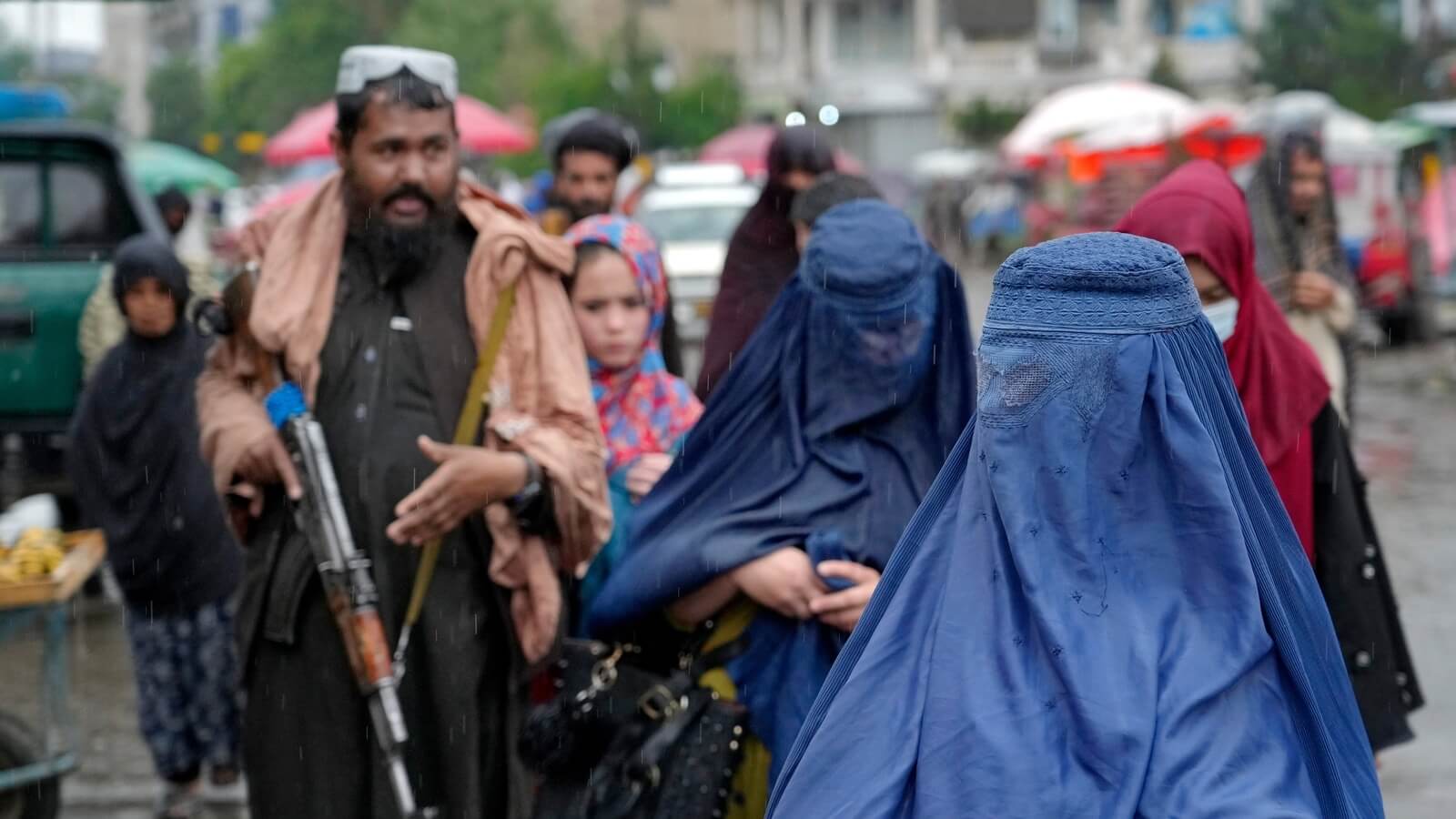The United Nations Security Council (UNSC) on Thursday held an emergency session to discuss several recent measures taken by the Taliban that severely repress women’s freedom in Afghanistan. The behind closed doors meeting was held in the wake of the Taliban’s dictate last week forcing women to cover their faces in public.
A statement drafted by Norway, which requested the session, said that the Taliban’s “continuous infringement on human rights for girls and women […] is detrimental to peace and stability and a matter that belongs on the Council’s agenda.”
Also Read: The Taliban Could Reverse Two Decades of Progress in Women’s Education in Afghanistan.
“Taliban policies continue to focus on oppressing women and girls rather than addressing the economic crisis,” the statement read. It added that the Taliban has been pursuing policies that seek to exclude women from public life.
Norway’s deputy ambassador to the UN, Trine Heimerback, said, “Since the Taliban came to power, women’s and girls’ rights have been rolled back in areas of great importance to their lives,” including their education, employment, healthcare, and freedom of movement.
“These restrictions will also severely limit Afghanistan’s ability to respond to the catastrophic economic and humanitarian situation, which again may lead to violence and radicalisation,” she stressed.
On Saturday, the Taliban issued a decree ordering all Afghan women to cover their faces from head to toe in public spaces. The new law states that any garment, not too tight nor too thin, that covers the entire body of a woman is considered a hijab and is permissible. It also advised women to stay at home because “the best way to observe hijab is to not go out unless it’s necessary.”
👆As penholder on #Afghanistan in the #SecurityCouncil, Norway will continue to work with all #UNSC members to send a joint message to the #Taliban to respect the #HumanRights of Afghan women & girls#WomensRightsAreHumanRights pic.twitter.com/DMizk6H4Ob
— NorwayUN (@NorwayUN) May 12, 2022
The UN condemned the Taliban’s decision and urged the group to reverse the decree. Secretary-General António Guterres said that he is “alarmed” by the Taliban’s announcement. “I once again urge the Taliban to keep their promises to Afghan women and girls, and their obligations under international human rights law,” he declared.
Similarly, the UN Assistance Mission in Afghanistan (UNAMA) stated that it is “deeply concerned” with the decree. “This decision contradicts numerous assurances regarding respect for and protection of all Afghans’ human rights, including those of women and girls, that had been provided to the international community by Taliban,” UNAMA said.
Apart from the ban on revealing faces, the fundamentalist group has been taking regressive steps with respect to women following its seizure of power last August despite making promises that it would respect women’s rights. In March, the Taliban said that it will not allow girls to attend high school because it goes against Islamic Sharia law.
The Taliban has also denied women from working in government offices, banned women from boarding flights without a male guardian, prevented them from visiting parks on the same days as men, and prevented them from obtaining driving licenses. The moves put the group at odds with the international community, which has been urging the Taliban to take measures to protect minorities, women, and children as a precondition for any recognition of its government and relaxation of sanctions.

